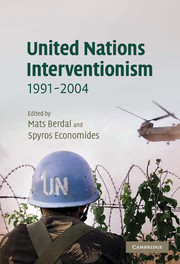5 - Rwanda
Published online by Cambridge University Press: 22 September 2009
Summary
Scholarly studies and policy debates about peacekeeping in Rwanda have largely focused on the question of whether or not it was possible, in the immediate aftermath of the outbreak of genocide in April 1994, to rapidly reinforce the small peacekeeping presence on the ground and thereby halt the ongoing mass killing that killed over 750,000 people in three months. Against a series of arguments that this was a feasible policy option, most forcefully made by the serving Force Commander Romeo Dallaire, and also by the Carnegie Corporation project on Preventing Deadly Violence's Scott Feil, scholars such as Alan Kuperman have made strong arguments to the contrary. This debate has shaped the lessons learned, and unlearned, from Rwanda.
While this debate remains unresolved, this chapter argues that the real failures in peacekeeping in Rwanda occurred far earlier than this juncture. The real failures occurred in 1993 in designing a ‘neutral international force’ – which became the United Nations (UN) Assistance Mission in Rwanda (UNAMIR) – to help implement the Arusha Accords. These failures were in part the result of poor communication and coordination; in part the result of political dynamics between the UN Security Council and the UN Secretariat; in part of the conception in the UN Security Council that Rwanda was a mission of tertiary importance. These factors led to the deployment of a mission that was poorly matched to the real challenges that awaited it.
- Type
- Chapter
- Information
- United Nations Interventionism, 1991–2004 , pp. 139 - 167Publisher: Cambridge University PressPrint publication year: 2007
- 4
- Cited by

